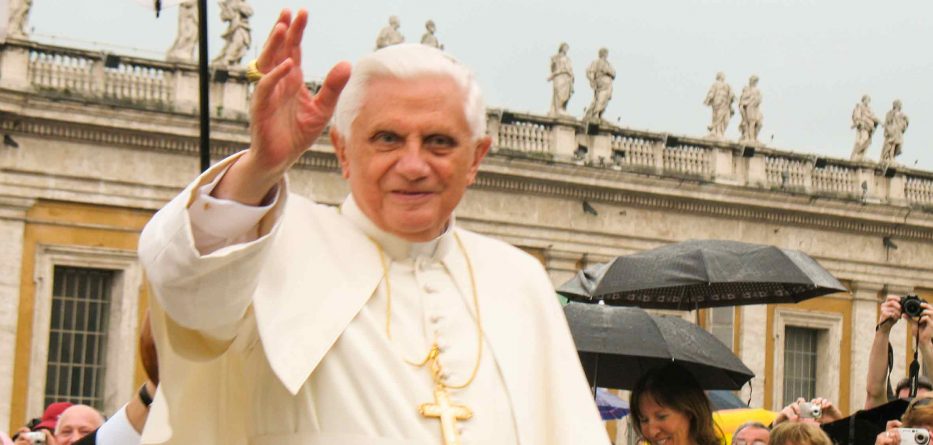On February 11, 2013, Pope Benedict XVI announced his resignation. Vatican News’ Editorial Director looks back at this event and suggests it would be a mistake to remember the Pope Emeritus for this reason only.
Six years have passed since that bolt from the blue: the announcement of the first papal resignation for reasons of health and old age.
After eight years as Pope, Benedict XVI announced his intention to resign from the Petrine ministry at the end of February, because he no longer felt able, physically and spiritually, to carry the weight of that ministry – one that has changed greatly over the past century in the way it is exercised: in terms of celebrations, commitments, and international journeys.
Testimony of Benedict XVI
Much has been said and written about that papal resignation. The result is that we risk focusing exclusively on the gesture itself, being distracted from the personal testimony and, above all, the Magisterium of Pope Benedict XVI.
In a few days, the Meeting for the Protection of Minors will take place in the Vatican, with the participation of Presidents of Bishops’ Conferences from around the world, together with Pope Francis. In terms of Pope Benedict’s testimony, it is worthwhile remembering that he was the one who began meeting with victims of abuse. Meetings that always took place far from the cameras, and that involved listening, praying, and tears. Accompanying these meetings were clearer and more decisive rules to combat the terrible plague of abuse.
Today there is no doubt that the necessary change of mentality, on the part of bishops and religious superiors first of all, passes through this ability to meet with victims and their families. It requires participating in the pain of their dramatic stories, being aware that this phenomenon can never be fought with norms, codes or best practices alone.
Magisterium of Benedict XVI
The Magisterium of Pope Benedict XVI is all too often trivialised by simplistic interpretations and prefabricated clichés, unable to comprehend the richness, complexity and fidelity to the teachings of the Second Vatican Council.
How can we fail to remember his insistence that the Church “has nothing of her own to offer to Him who founded her, such that she might say: here is something wonderful that we did!
Her raison d’etre consists in being a tool of redemption, in letting herself be saturated by God’s word and in bringing the world into loving unity with God.” A vision that is the opposite of trusting in strategies and projects.
In a speech given at the Concert Hall in Freiburg im Breisgau, in September 2011, Pope Benedict XVI continues to describe his vision of the Church: “When she is truly herself, she is always on the move; she constantly has to place herself at the service of the mission that she has received from the Lord.
And therefore, she must always open up afresh to the cares of the world, to which she herself belongs, and give herself over to them, in order to make present and continue the holy exchange that began with the Incarnation.”
In that same speech, Pope Benedict XVI warns against the opposite tendency: a Church that “becomes self-satisfied, settles down in this world…Not infrequently she gives greater weight to organisation and institutionalisation than to her vocation to openness towards God, her vocation to opening up the world towards the other.”
In that speech, the Pope Emeritus demonstrates the positive side of secularisation, which has “contributed significantly to the purification and inner reform” of the Church, by expropriating her goods and eliminating her privileges.
Because, he concludes, “once liberated from material and political burdens and privileges, the Church can reach out more effectively and in a truly Christian way to the whole world, she can be truly open to the world. She can live more freely her vocation to the ministry of divine worship and to the service of her neighbour.”
With thanks to Vatican News and Andrea Tornielli, where this article originally appeared.








